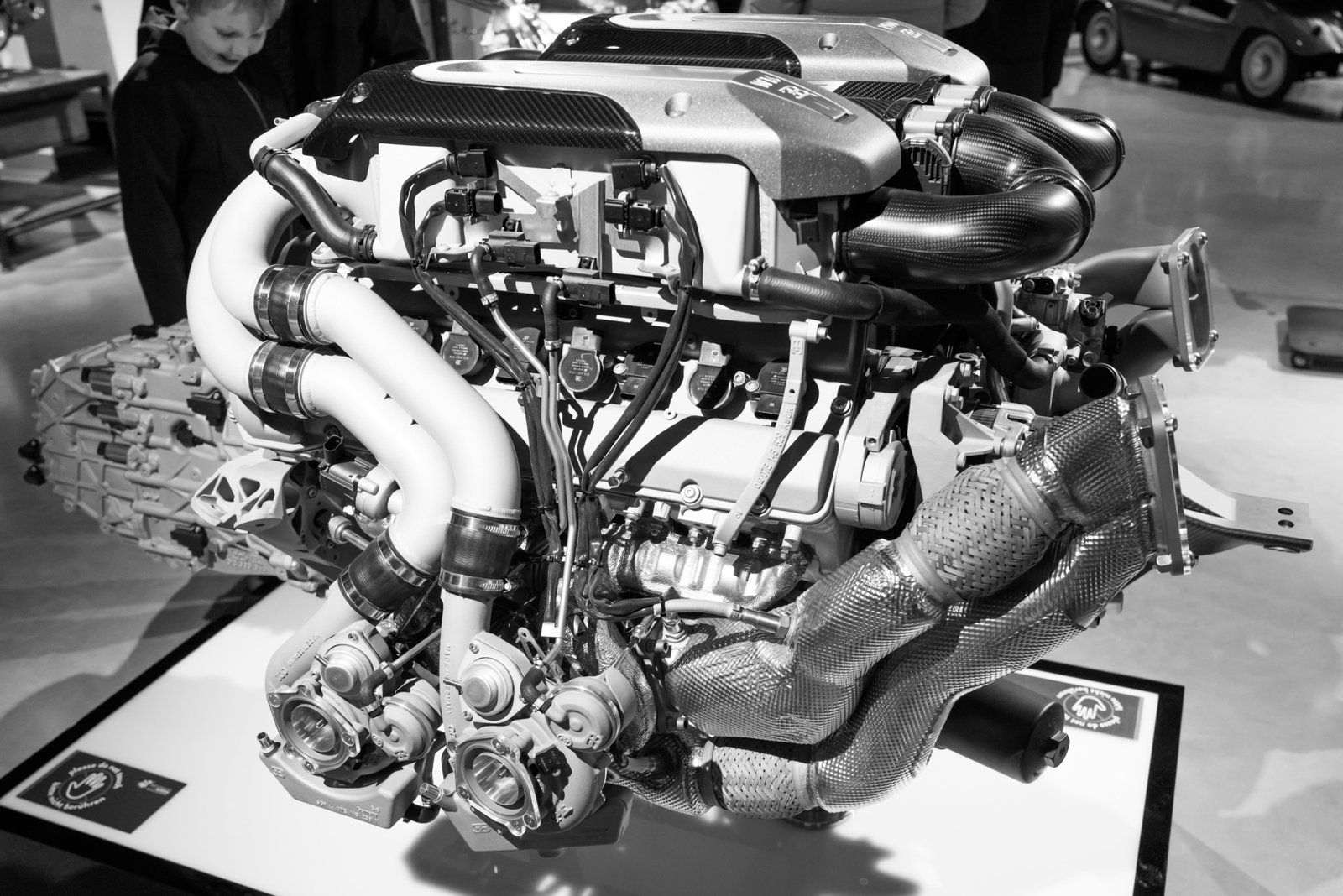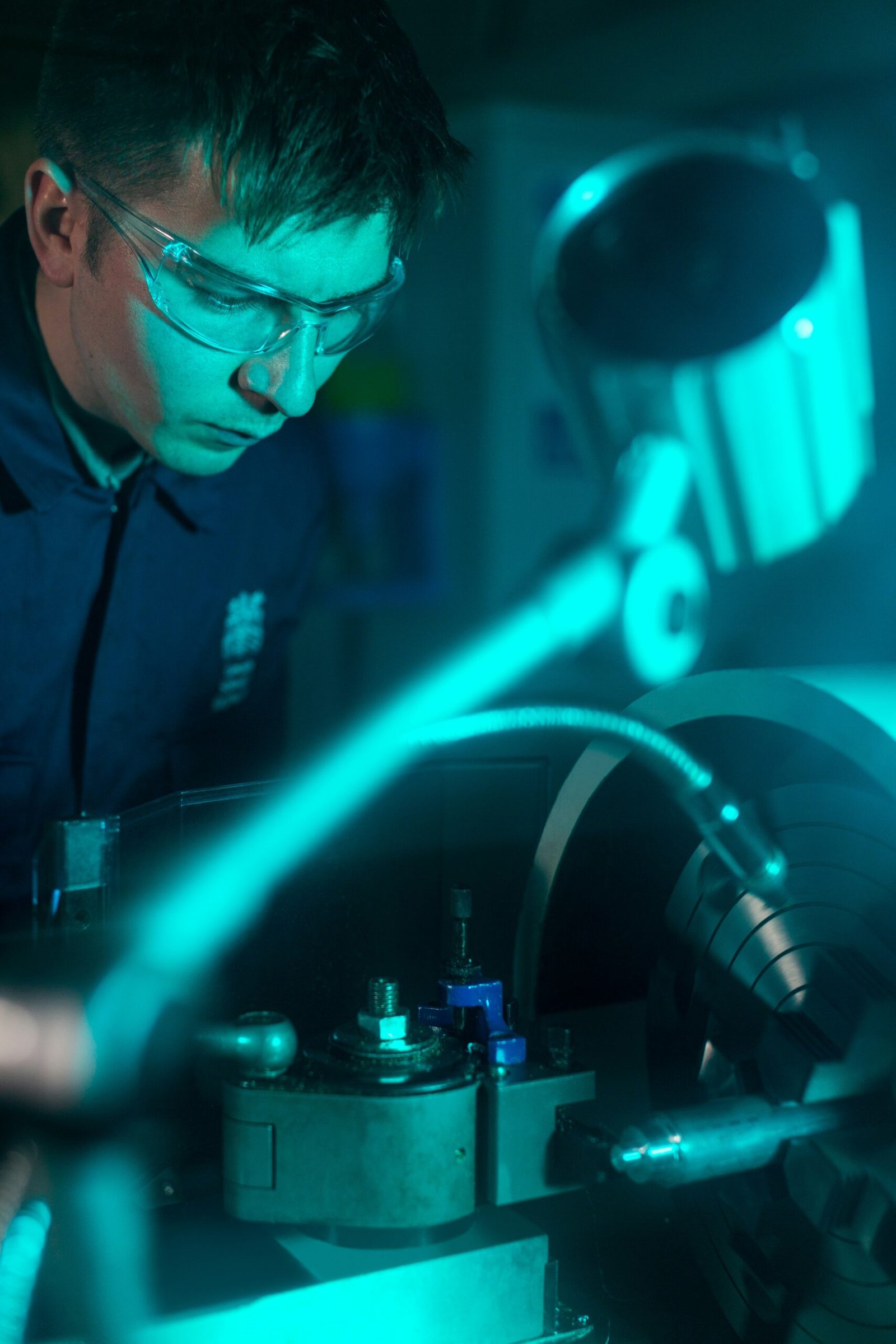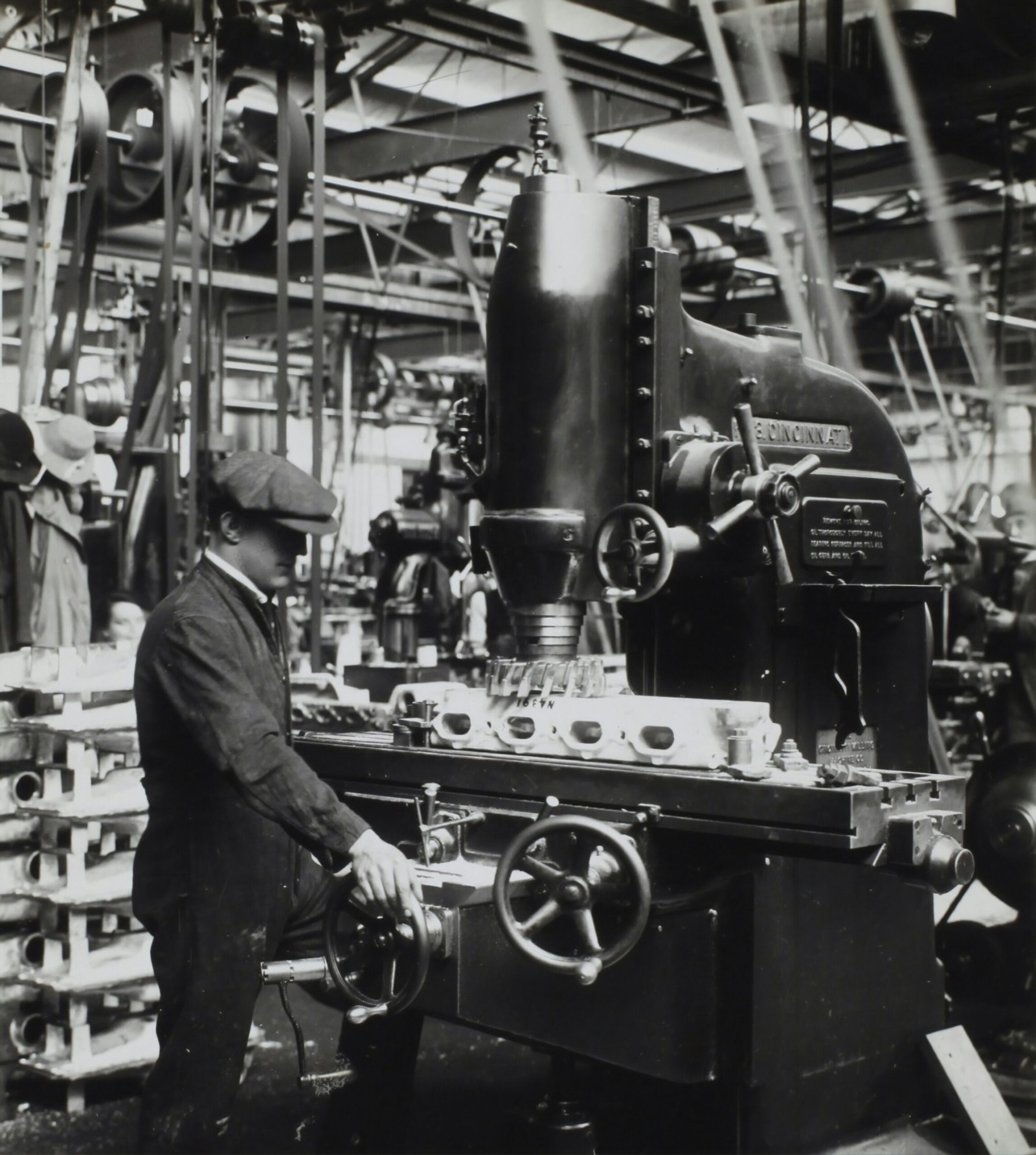Introduction to Automotive Replacement Engines
Automotive replacement engines serve as critical components in the automotive industry, providing vehicle owners with viable alternatives to factory-installed engines. When original equipment manufacturer (OEM) engines fail or become inefficient over time, replacement engines can restore functionality, enhance performance, or even improve fuel efficiency. Understanding the nuances of automotive replacement engines is essential for both vehicle owners and enthusiasts who are considering upgrades or restorations. The primary purpose of a replacement engine is to replace a damaged or worn-out engine, ensuring the vehicle remains operational and reliable. Unlike OEM engines, which are manufactured to the specifications set forth by vehicle makers, replacement engines can vary greatly in their construction and purpose. Some may be remanufactured—that is, restored to like-new condition—while others may be new units built to fit a specific model’s requirements. Additionally, performance replacement engines are also available, allowing for significant improvements in horsepower and torque, catering to enthusiasts seeking enhanced driving experiences. Understanding the available replacement engine options is crucial for vehicle owners, as there are many factors to consider. These include compatibility with the existing vehicle model, emissions standards, warranty coverage, and expected performance levels. Furthermore, vehicle owners should weigh the long-term benefits of investing in a replacement engine against potential costs. This knowledge not only aids in making informed decisions but also ensures a smoother transition from the old engine to the new one, minimizing downtime and maximizing satisfaction. In summary, automotive replacement engines play a vital role in the longevity and performance of vehicles. By being informed about the differences between OEM and replacement engines, vehicle owners can make smarter choices that align with their specific needs and goals.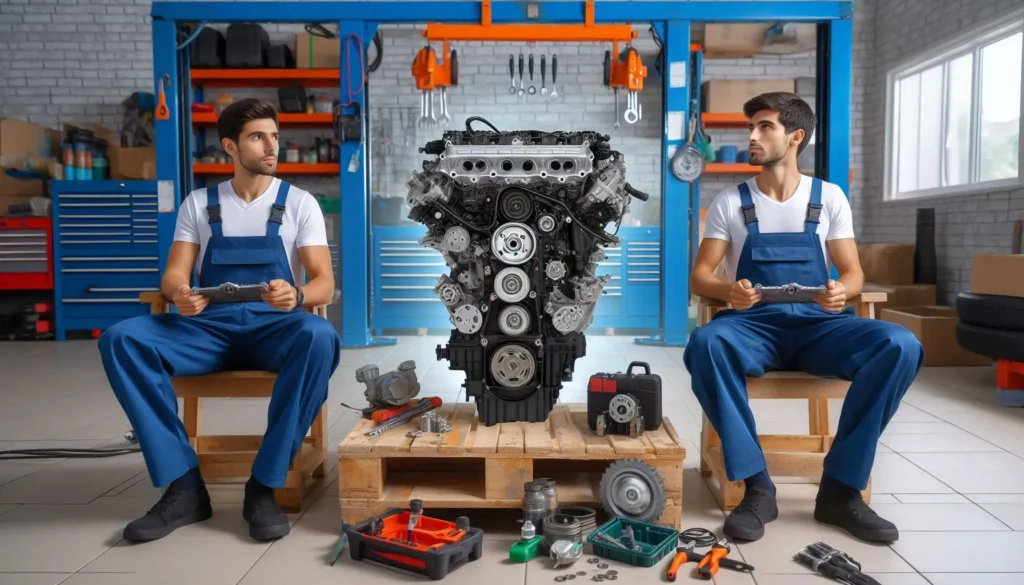
Types of Replacement Engines
Replacement engines come in various forms, each suited to different needs and budgets. Understanding the types of engines available can help vehicle owners make informed decisions when it comes to repairs or upgrades. The three primary categories include remanufactured, rebuilt, and used engines. Remanufactured engines are those that have been completely disassembled, cleaned, and rebuilt to meet or exceed original manufacturer specifications. This type of replacement engine often comes with a warranty and offers a high level of reliability and performance. The primary advantage of remanufactured engines is that they undergo rigorous quality control, ensuring that each component is in excellent condition. However, the main drawback is that they tend to be more expensive compared to other types of replacement engines. Rebuilt engines, on the other hand, are engines that have been partially disassembled and repaired. This process includes replacing worn or damaged components, such as pistons or bearings, but does not involve the same level of thoroughness as a remanufactured engine. While rebuilt engines can be a more cost-effective option, their performance and reliability may vary significantly based on the quality of the work done. It is essential for buyers to understand the extent of the rebuilding process to ensure they are acquiring a dependable engine. Lastly, used engines represent a more budget-friendly choice, typically sourced from salvages or junkyards. These engines are removed from vehicles that may have suffered accidents or other failures, but they can still offer an economical solution for many car owners. While the pricing of used engines is definitely an advantage, the unknown condition and potential hidden issues can pose significant risks. Buyers should conduct thorough inspections and verify the engine’s history to assess its suitability for their vehicle. In conclusion, understanding the various types of replacement engines—remanufactured, rebuilt, and used—allows vehicle owners to make prudent and informed decisions tailored to their specific circumstances and financial considerations.Factors to Consider When Choosing a Replacement Engine
Choosing a replacement engine is a significant decision that requires careful consideration of multiple factors. The primary element to evaluate is compatibility. It is crucial to select an engine that fits the specific make and model of your vehicle. Ensuring compatibility not only enhances performance but also prevents potential mechanical issues down the line. Consult your vehicle’s manual or a trusted mechanic to confirm the correct specifications before moving forward. Another essential factor to consider is the warranty offered by the supplier. A robust warranty indicates the manufacturer’s confidence in their product and provides peace of mind for the buyer. Look for engines with extended warranty options, as they often cover both parts and labor, which can significantly mitigate future repair costs. Assessing the terms and conditions associated with the warranty is equally important to understand what is and isn’t covered. Price is another critical element that cannot be overlooked. While it might be tempting to opt for the cheapest option available, the old adage “you get what you pay for” often holds true in the aftermarket engine market. Striking a balance between cost and quality is essential in ensuring a reliable and efficient engine replacement. It is advisable to gather multiple quotes and compare them while paying close attention to the specifications and features offered by each option. The quality of the replacement engine should always be a priority. Opting for refurbished or reconditioned engines may be more economical, but evaluating their reliability and performance is vital. Finally, consider the reputation of the supplier. Researching customer reviews and ratings can provide invaluable insight into their reliability and customer service. By taking these factors into account, vehicle owners can make informed decisions when selecting a replacement engine that meets their needs and expectations.Benefits of Upgrading to a Replacement Engine

Getting a Replacement Engine Installed: DIY vs. Professional Mechanic
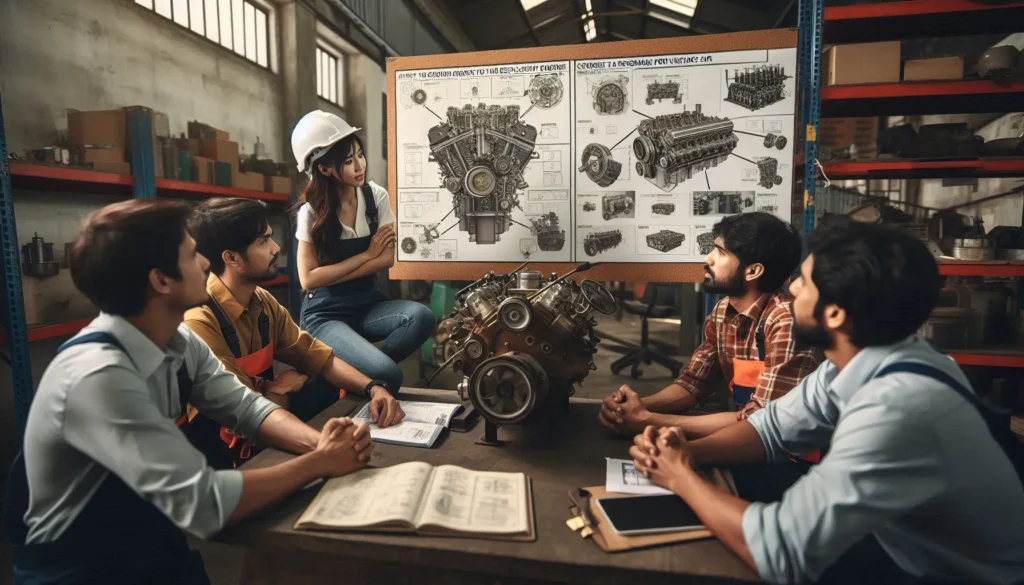
Common Mistakes to Avoid When Purchasing a Replacement Engine
Purchasing a replacement engine for your vehicle is an important decision that requires careful consideration. Many vehicle owners make critical mistakes during this process that can lead to problems down the line. One common error is failing to verify the condition of the engine. Before making a purchase, it is essential to inspect the engine thoroughly, including looking for any signs of damage, wear, or previous repairs. Ignoring this step can result in acquiring an engine that may not meet performance expectations or could lead to additional repair costs. Another mistake is overlooking compatibility issues. Not all engines are interchangeable; it is crucial to ensure that the replacement engine is suitable for your specific vehicle model and year. Disregarding this compatibility can result in costly modifications or even a complete failure to install the engine. To avoid such complications, refer to the owner’s manual or consult with a professional mechanic to confirm that the replacement engine matches the original specifications. Additionally, many vehicles owners neglect to consider warranties when purchasing a replacement engine. A warranty can provide peace of mind and financial protection against unforeseen issues. It is advisable to carefully read the warranty details, checking the duration and coverage before finalizing the purchase. Some warranties may have limitations or requirements that could affect their validity, so understanding these terms is critical. Ignoring warranties can leave you vulnerable to unexpected repair bills. Finally, it is important to conduct research on the seller or the engine’s history. Ensure that the vendor is reputable and offers quality replacement parts. Gathering information about the seller’s feedback and ratings can help avoid potential scams or low-quality engines. By being aware of these common mistakes and taking proactive measures, vehicle owners can make informed decisions and select reliable replacement engines that meet their needs.Cost Considerations for Replacement Engines
The decision to replace an automotive engine is often influenced by a variety of costs associated with the endeavor. Understanding the financial implications involved in purchasing and installing a replacement engine is crucial for any vehicle owner considering this option. Generally, the price range for replacement engines can vary significantly based on the type, make, and model of the vehicle. For instance, a remanufactured engine may cost anywhere from $2,500 to $4,500, while a new engine could range from $5,000 to over $10,000. Performance engines, on the other hand, can be priced upwards of $15,000, depending on the specifications and enhancements. In addition to the cost of the engine itself, labor costs must also be taken into account when calculating the total expenses associated with engine replacement. Labor costs can significantly impact the overall budget, typically ranging from $500 to $1,500. The complexity of the vehicle, the labor rates in the local market, and the expertise of the mechanic can all influence this cost. For instance, certain vehicles may require specialized knowledge and tools for installation, potentially leading to higher labor fees. Moreover, additional expenses may arise during the replacement process. These could include necessary components such as gaskets, seals, and fluids, which can add anywhere from $100 to $500 to the overall cost. If any ancillary systems are affected, such as cooling or electronic systems, further maintenance costs may be incurred, contributing to the financial burden of the procedure. Therefore, it is imperative to conduct thorough research and obtain detailed cost estimates before proceeding with an automotive engine replacement to ensure a realistic understanding of the expenses involved.Maintenance Tips for Replacement Engines
Maintaining a replacement engine is crucial for maximizing its lifespan and ensuring optimal performance. Regular and systematic upkeep can prevent issues and enhance reliability, making it essential for vehicle owners to adopt a proactive maintenance approach. One of the primary maintenance practices is scheduling regular check-ups. These assessments should be carried out by a qualified mechanic who can conduct thorough inspections and identify any potential problems before they escalate. Regular check-ups can involve examining various components, including hoses, belts, and electrical systems, all of which contribute to the overall health of the engine. Another essential aspect of maintenance is timely oil changes. Engine oil plays a pivotal role in lubricating the engine components, reducing friction, and dissipating heat. Over time, oil can degrade and become contaminated, adversely affecting engine performance and longevity. It is generally recommended to change the oil every 3,000 to 5,000 miles, although specific intervals may vary based on the engine type and usage conditions. Adhering to the manufacturer’s recommendations for oil type and service intervals is vital to ensure optimal functioning. Adhering to maintenance schedules is crucial for maintaining the efficiency of replacement engines. Manufacturers usually provide detailed service schedules that outline recommended maintenance tasks, such as replacing the air filter, fuel filter, and spark plugs, among others. Following these schedules not only improves engine performance but also aids in identifying and rectifying issues early on. Additionally, keeping a detailed log of all maintenance activities can be beneficial, as it provides both the owner and potential future buyers with a comprehensive history of the service records. In conclusion, regular maintenance practices such as check-ups, timely oil changes, and adherence to manufacturer schedules are fundamental for ensuring the longevity and reliability of replacement engines. By committing to diligent upkeep, vehicle owners can enjoy the benefits of enhanced performance and reduced repair costs over time.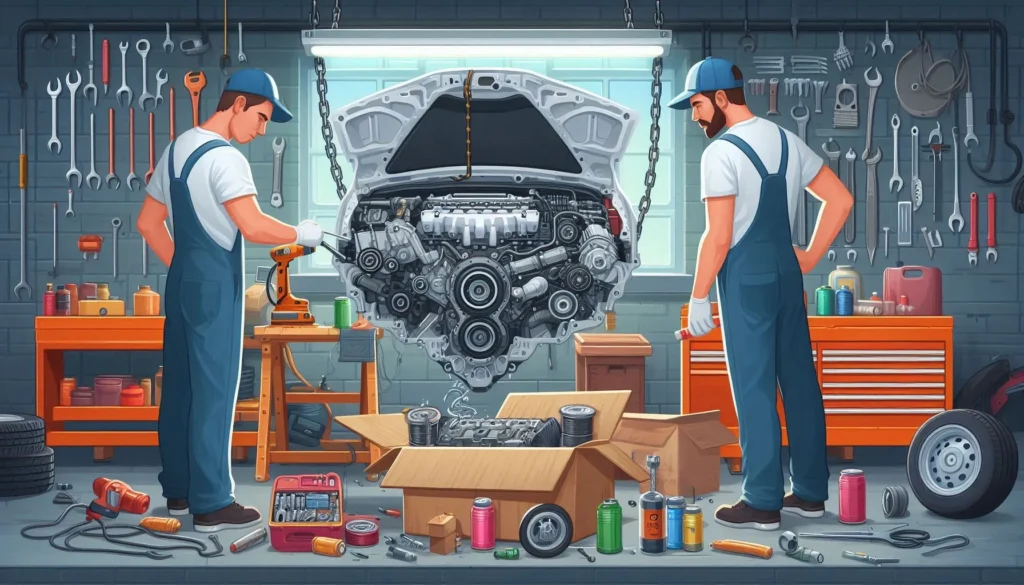
Conclusion: Making the Right Choice for Your Vehicle
In this comprehensive guide, we have explored various critical aspects of automotive replacement engines, highlighting the significance of understanding the options available to vehicle owners. Selecting a replacement engine is a decision that not only impacts the performance and longevity of the vehicle but also reflects on the overall investment in automobile maintenance. It is crucial for individuals to recognize the diverse types of replacement engines, including reconditioned, remanufactured, and used engines, as each type presents different benefits and risks. Furthermore, we discussed the importance of evaluating your specific vehicle needs. This involves considering factors such as the make and model of your vehicle, the intended use of the vehicle, and your budget. Understanding the underlying issues that necessitate a replacement engine is also vital. Whether it be due to high mileage, mechanical failure, or other factors, having insights into the cause will aid in making a more informed choice. Another key point addressed is the significance of collaborating with professionals in the automotive field. Mechanics or automotive engineers can provide valuable insights that will guide your decision-making process. Their expertise in diagnosing issues and recommending suitable engines tailored to your vehicle can be indispensable when navigating the complexities of replacement engines. Ultimately, making a well-informed choice regarding automotive replacement engines is essential for ensuring the reliability and efficiency of your vehicle. We encourage readers to take the time to assess their individual circumstances, explore various options, and consult with knowledgeable professionals before moving forward with any purchases. By doing so, you will be better equipped to enhance your vehicle’s performance and restore its functionality to meet your needs.-
nagaco
- November 18, 2024
Exploring the Cison V8 Engine: A High-Performance Model Engine
Introduction to the Cison V8 Engine The Cison V8 engine has become a prominent player in high-performance model engines. Known…
Bike Engines Transform Your Ride with These Powerful Upgrades!
- October 10, 2024
Rev Your Engines: The Best Motorcycle Games for Racing Enthusiasts
- September 29, 2024

